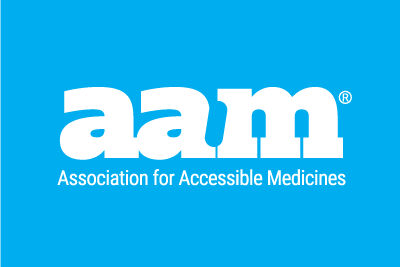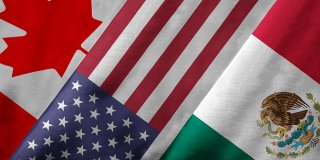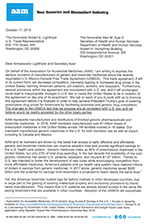On October 1, the U.S. Trade Representative (USTR) announced a proposed agreement with Canada and Mexico to revise the North American Free Trade Agreement (NAFTA). The trade agreement–now called the U.S.-Mexico-Canada Free Trade Agreement (USMCA)–will decrease competition from more affordable generic and biosimilar medicines and keep patients paying high drug prices for longer.
Without changes to the agreement, USMCA will slow the development of biosimilars in the U.S., increase brand-name drug exclusivity (monopolies) for biologics in Canada and Mexico, and expand protections for brand-name drugs beyond current U.S. law.
Competition from generic and biosimilar medicines is a centerpiece of the president’s Blueprint to Lower Drug Prices and is a proven solution to bring down the cost of prescription drugs in the U.S. When patients are able to access more affordable generics and biosimilars, experience shows significant cost savings are realized at the pharmacy counter. However, the USMCA runs counter to the goals of the president’s Blueprint by decreasing prescription drug competition.
Concern about delaying patient access to more affordable generics and biosimilars in U.S. trade agreements is widespread.
- Association for Accessible Medicines (AAM), together with 28 groups, submitted a letter to U.S. Trade Representative Robert E. Lighthizer, Health and Human Services Secretary Alex M. Azar and congressional leadership expressing concern that the U.S. Mexico-Canada Agreement, if left in its current form, will keep drug prices high and out of reach of Americans. The letter, signed by a diverse coalition of organizations, states that the draft agreement contains provisions that are inconsistent with U.S. law and includes monopoly protections and deterrents to competition that will slow biosimilar development, hurt generic competition and disrupt the critical balance between access and innovation in the market.
- Over 100 organizations sent a letter in January noting, “it is vital that the NAFTA party governments reject any provisions that would expand or strengthen pharmaceutical monopolies and enforcement at the expense of access to affordable medicines.”
- In June, AARP wrote to USTR, “AARP strongly opposes efforts to add harmful provisions to the renegotiated text of NAFTA that would extend or enhance monopoly protections for already-expensive biologic drugs.”
- The Leadership Council of Aging Organizations commented, “It is absolutely wrong to grant new monopoly protections sought by pharmaceutical CEOs for biologic medicines, like insulin. We would also oppose revising NAFTA to force countries to allow ‘evergreen’ patents … or to issue new patent terms for new uses of old drugs. All such schemes are used to block the entry of generic drugs into the market and raise prices for working families.”
AAM recently provided USTR with recommendations on how to improve USMCA by including policies that provide an incentive to:
- challenge brand-name drug patents
- facilitate the approval of new generics and biosimilars and
- enhance transparency of patents and exclusivities
These recommendations build on previous requests–a joint letter with our counterparts in Mexico and Canada in September 2017 and comments to the Department of Health and Human Services in response to the Trump Administration’s Blueprint.
Addressing the high cost of prescription drugs continues to be a top health care priority for the public. There’s still time to fix the USMCA, increase patient access to more affordable medicine, and enhance competition through additional generics and biosimilars. While U.S. law seeks to balance innovation and access to affordable medicines, USMCA almost uniformly protects and extends the patent monopolies of brand-name drug companies. Thus, it is critical for the trade agreement to be fixed to enhance patient access to affordable medicines.



